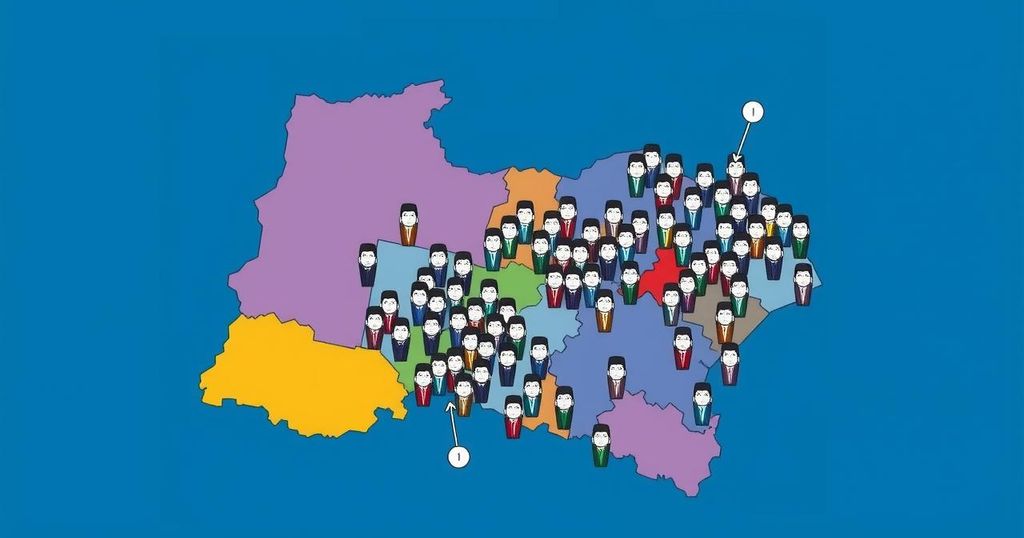Uruguay’s Stable Elections Conceal Critical Socio-Economic Issues
Uruguay’s recent presidential election showcased a peaceful transfer of power amidst regional turmoil in Brazil and Argentina. However, underlying economic and social issues pose significant challenges to its democratic stability. It is essential for the new administration to address these issues to secure a sustained improvement in the country’s socio-economic landscape.
Uruguay, long viewed as a beacon of democratic stability in South America, recently conducted a presidential election that was markedly different from its regional neighbors. As political turmoil has enveloped Brazil following the ousting of ex-president Jair Bolsonaro and Argentina grapples with controversial leadership, Uruguay’s peaceful transition of power stands in stark contrast. However, beneath this veneer of stability lies a range of systemic issues that merit urgent attention, including economic challenges and social inequality that threaten the country’s resilience.
The election results have demonstrated a robust commitment to democratic norms, with all candidates graciously conceding, a practice unthinkable in the more fractious political environments of Brazil and Argentina. Yet, this model of civility in democratic engagement can obscure the pressing difficulties that persist in the socio-economic landscape of the nation. As the newly elected administration moves forward, it must confront these underlying problems that could jeopardize Uruguay’s hard-won stability.
Uruguay’s political environment has historically been characterized by a strong commitment to democratic principles, making it a relative anomaly in a region often marred by political strife. The recent elections showcased a civil atmosphere, with defeated candidates swiftly congratulating their opponents, a stark contrast to the chaotic political scenes in its neighboring countries. Nevertheless, the socio-economic backdrop reveals significant challenges that could threaten this stability, such as economic downturns, high inflation, and pervasive social inequalities. Addressing these issues is crucial to preserving both the political and social fabric of the nation.
While Uruguay’s recent election highlighted its dedication to democratic processes and civil political discourse, it is crucial that the new administration addresses the underlying economic and social challenges. The perception of stability may be misleading if these persistent issues are not adequately tackled. The country’s future depends on its ability to confront these systemic problems while maintaining its democratic ideals.
Original Source: www.barrons.com




Post Comment